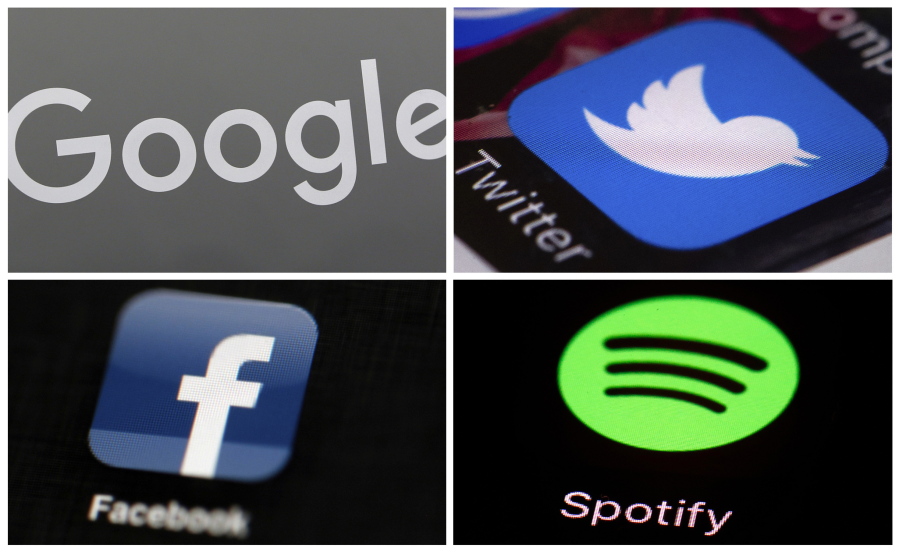NEW YORK — Who knew connecting the world could get so complicated? Perhaps some of technology’s brightest minds should have seen that coming.
Social media bans of conspiracy theorist Alex Jones have thrust Facebook, YouTube, Twitter and others into a role they never wanted — as gatekeepers of discourse on their platforms, deciding what should and shouldn’t be allowed and often angering almost everyone in the process. Jones, a right-wing provocateur, suddenly found himself banned from most major social platforms this week, after years in which he was free to use them to promulgate a variety of false claims.
Twitter, which one of its executives once called the “free speech wing of the free speech party,” remains a lonely holdout on Jones. The resulting backlash suggests that no matter what the tech companies do, “there is no way they can please everyone,” as Scott Shackelford, a business law and ethics professor at Indiana University, observed.
Facebook’s Mark Zuckerberg, Twitter’s Jack Dorsey and crew, and Google’s stewards of YouTube gave little thought to such consequences as they built their empires with lofty goals to connect the world and democratize discourse. At the time, they were the rebels aiming to bypass the stodgy old gatekeepers — newspaper editors, television programmers and other establishment types — and let people talk directly to one another.
“If you go back a decade or so, the whole idea of speech on social media was seen as highly positive light,” said Tim Cigelske, who teaches social media at Marquette University in Wisconsin. There was the Arab Spring. There were stories of gay, lesbian and transgender teens from small towns finding support online.
At the same time, of course, the companies were racing to build the largest audiences possible, slice and dice their user data and make big profits by turning that information into lucrative targeted advertisements.
The dark side of untrammeled discourse, the thinking went, would sort itself out as online communities moderated themselves, aided by fast-evolving computer algorithms and, eventually, artificial intelligence.
“They scaled, they built, they wanted to drive revenue as well as user base,” said technology analyst Tim Bajarin, president of consultancy Creative Strategies. “That was priority one and controlling content was priority two. It should have been the other way around.”
That all got dicier once the election of President Donald Trump focused new attention on fake news and organized misinformation campaigns — not to mention the fact that some of the people grabbing these new social-media megaphones were wild conspiracy theorists who falsely call mass shootings hoaxes, white nationalists who organize violent rallies and men who threaten women with rape and murder.
While the platforms may not have anticipated the influx of hate speech and meddling from foreign powers like Russia, North Korea and China, Bajarin said, they should have acted more quickly once they found it.
“The fact is we’re dealing with a brave new world that they’ve allowed to happen, and they need to take more control to keep it from spreading,” he said.



